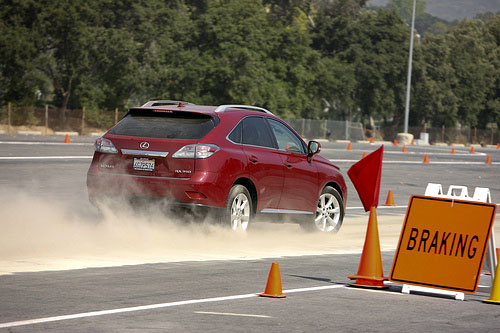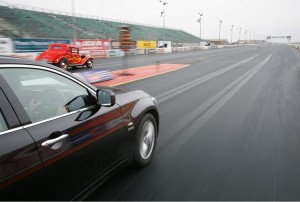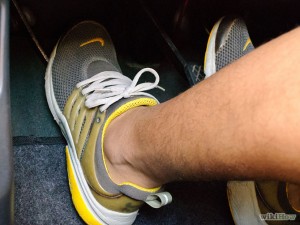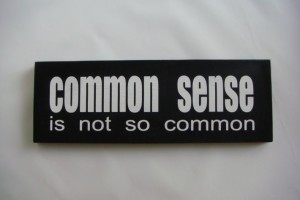Well, the topic may seem to be absurd but the reason behind this is teach you how to do it RIGHT. Although, I am not a car instructor and also I know that most of the people reading this are good drivers (“good” here is only an assumption).
Driving in day to day, bumper to bumper traffic conditions is something we all suffer from. But as soon as we get a small gap, we shoot and then again slam the brakes hard! Is that what you do too? Well if you do so, that ain’t right.
Braking is a topic to which most of the people would not like to listen in person and make assumptions that they know how to brake. But in real life conditions, it has been proven that most of the accidents that occur also include a point of senseless braking or poor braking decisions. It is said that a good driver is one who brakes less. That doesn’t mean here that you drive too slow to use brakes, but what it means is that you drive in a manner which leads to optimum use of engine braking. Slamming brakes harder would not only wear your brake pads faster, but also other mechanicals take a hit. So, what to do? How to brake properly?
Well here are a few tips:
ACCELERATION
Proper braking also depends upon the way you accelerate your car / bike. Well it goes like this, the harder you accelerate the faster you get. The faster you get there, more the need of brakes. More the braking, more the effect on your ride.
Hard braking not only affects mechanicals, it also leads to reduction in efficiency of your engine. Harder braking also leads to burning of more rubber that means you loose your tyres before their age limit. So, this entire sudden braking means making your pocket light weight!
In order to reduce risks of breaking down of your mechanicals and also more expensive fuel and repair bills, accelerate in a slow and steady manner. Here slow may not be necessary but steady is a term that you must follow.
Also avoid accelerating hard in moving traffic because all you have to do at the end is brake. The faster you try to go the harder you slam your brakes. That’s useless!
ENGINE BRAKING
This is a technical term to which many people don’t refer to. Engine braking means the slowing down of the vehicle by the resistance produced by the engine, moving down from higher rpm to lower in the same gear. Engine braking steadily decreases the speed of your vehicle once you lift your foot of the throttle. This is also very enjoyable while driving around your favourite twisties.
So to brake effectively without using much brake pedal you can use your gearbox to produce more engine resistance.
A very effective method from simply braking would be downshifting + braking, which will slow down your vehicle much faster.
USE OF CLUTCH
The clutch disengages the gearbox from the driving shaft and thus leads to numbness in throttle and in the motion of car. If you try to brake while pressing clutch, you’re trying to brake a free rolling vehicle.
As soon as you press the clutch pedal, the car become neutral (independent) and free and thus the engine braking doesn’t come into play. This means that your car even gains momentum if you’re on a downhill. So doing this would lead to doubling up the working of your brakes. Would you like to do that? No? Good!
COMMON SENSE
The most effective braking condition is making use of some common sense. Accelerating like crazy, zig–zagging over highways, bursting up your engine power over traffic laden highways is going to do you & your vehicle no good. All it will do is put in more work for your braking system. If you do that, you risk your lives and other too over roads.
Also, be aware of the vehicle you own. Be aware about its positives & negatives. Almost all vehicles can achieve 100 kmph & more, but not all can brake in the best & safest way. Know your cars limits, and keep it tamed when out on the road.
Even if your vehicle is equipped with ABS, ensure you account the braking distance well and not press the pedal hard after crossing the optimum braking point.
Leave speeding to track days!
[Image Source : MeriGaadiBlog.wordpress.com]




